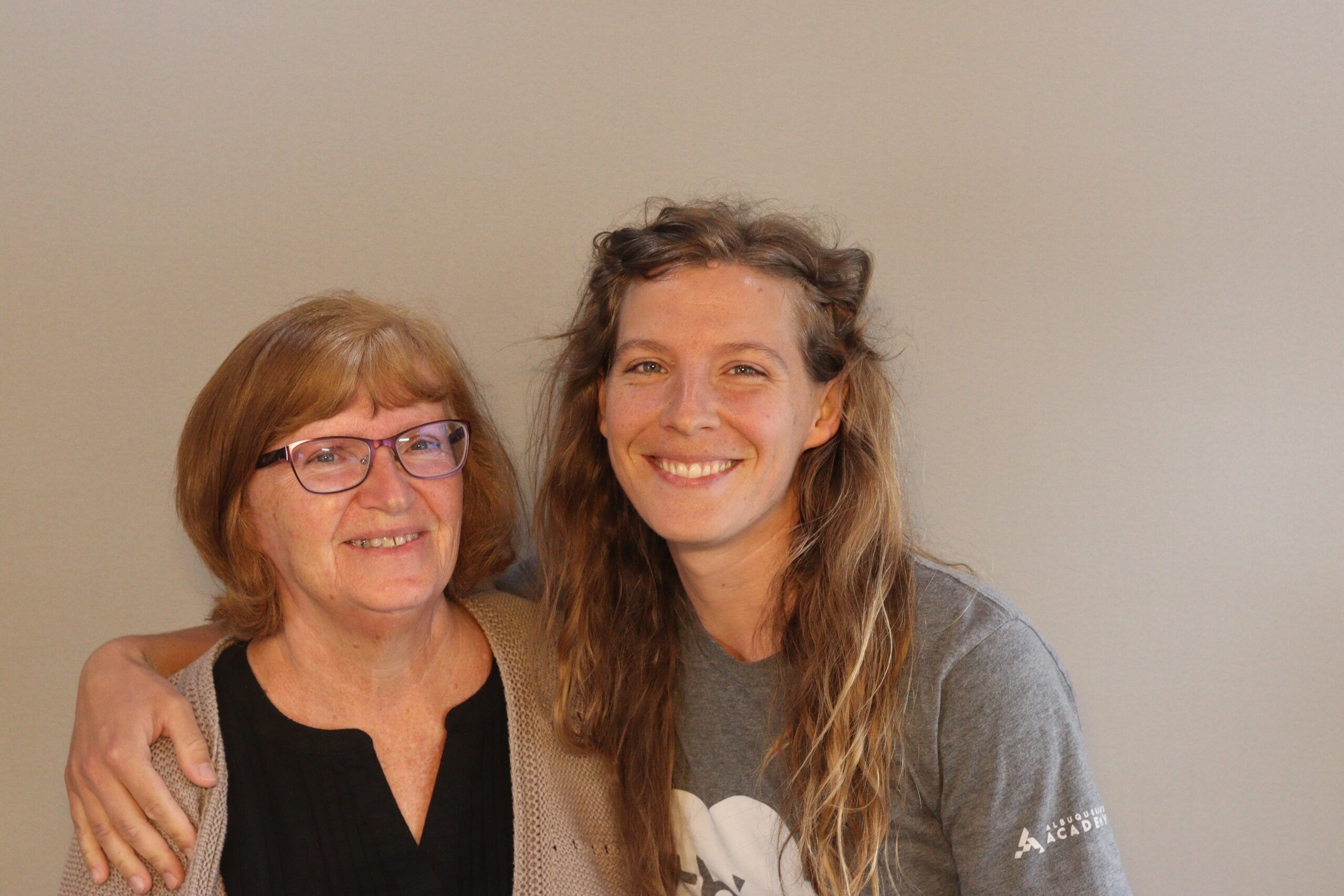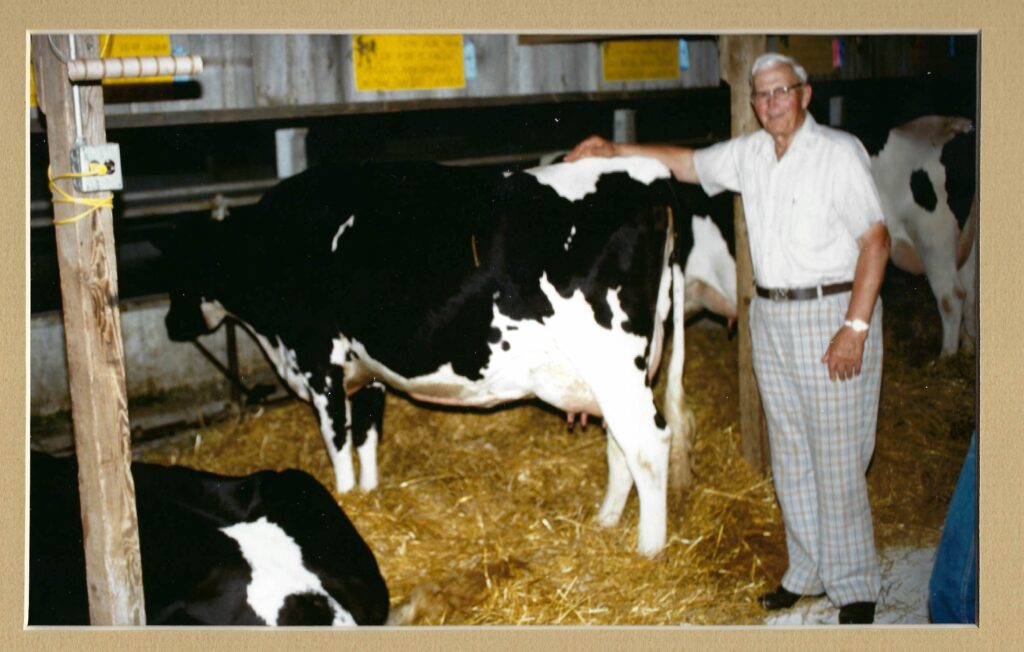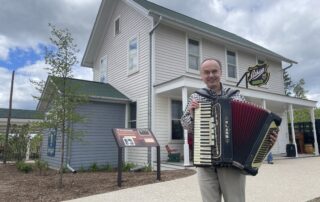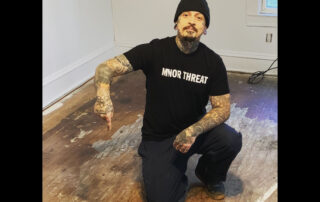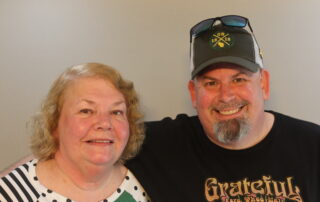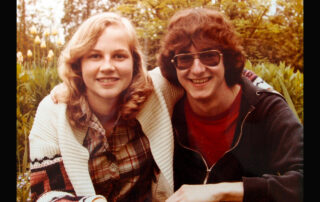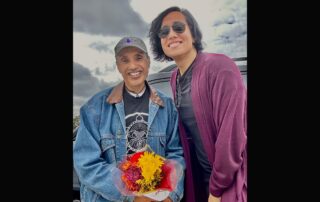Life on the farm used to be a common experience for many in this state. But with the number of family farms dwindling in Wisconsin, fewer people grow up ingrained in the hard working, family tradition that has bonded communities for generations. Eileen Bordeleau talked about life on the farm in Wayside, Wisconsin with her daughter, Rachel, as part of a StoryCorps Mobile Tour stop in Green Bay, Wisconsin.
==
Eileen Bordeleau: The farm has been in the family since 1863.
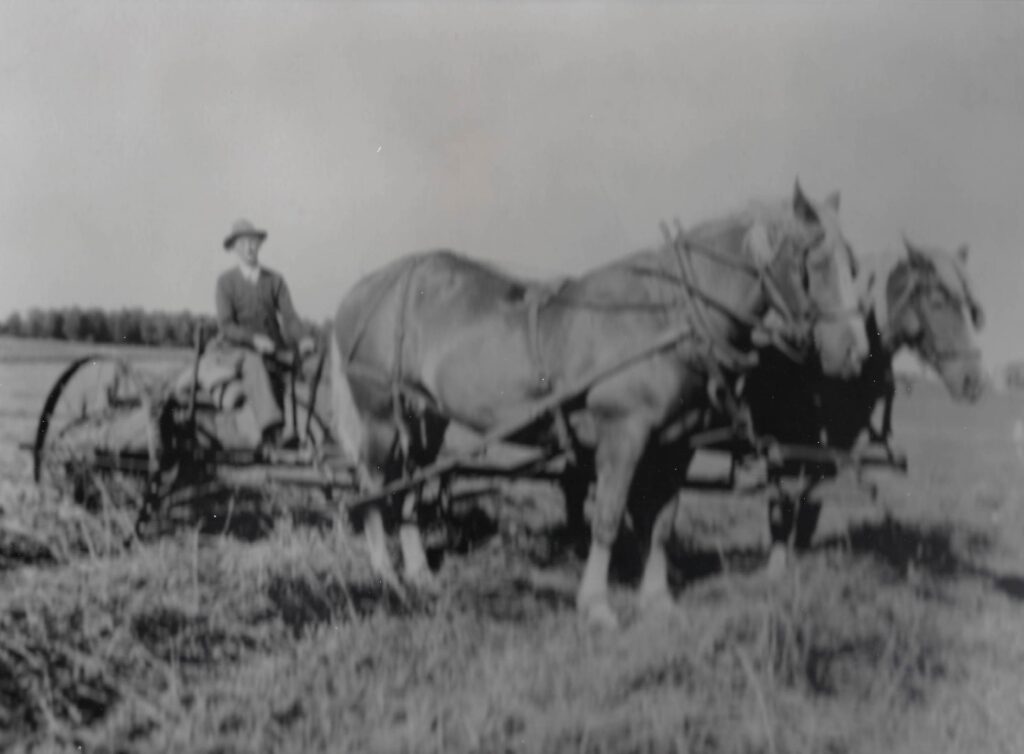
Eileen Bordeleau’s grandfather, Louis Natzke, with his horses, King and Queen, in the mid-1940s. (Courtesy of Eileen Bordeleau)
My grandpa, Louis Natzke, when he was running the farm, he was injured in a barn raising at one point when they were putting up the sides of the barn. You know, they’d build it, then put up the sides and people would help with that.
So at the age of 14, my dad, Amos Natzke, was taking over the farm and doing the majority of the farm work.
Rachel Bordeleau: So then your dad took over when he was 14. The years that he was in charge of the farm, was he working there until his death in the 90s or?
EB: Yes.
RB: Oh, wow.
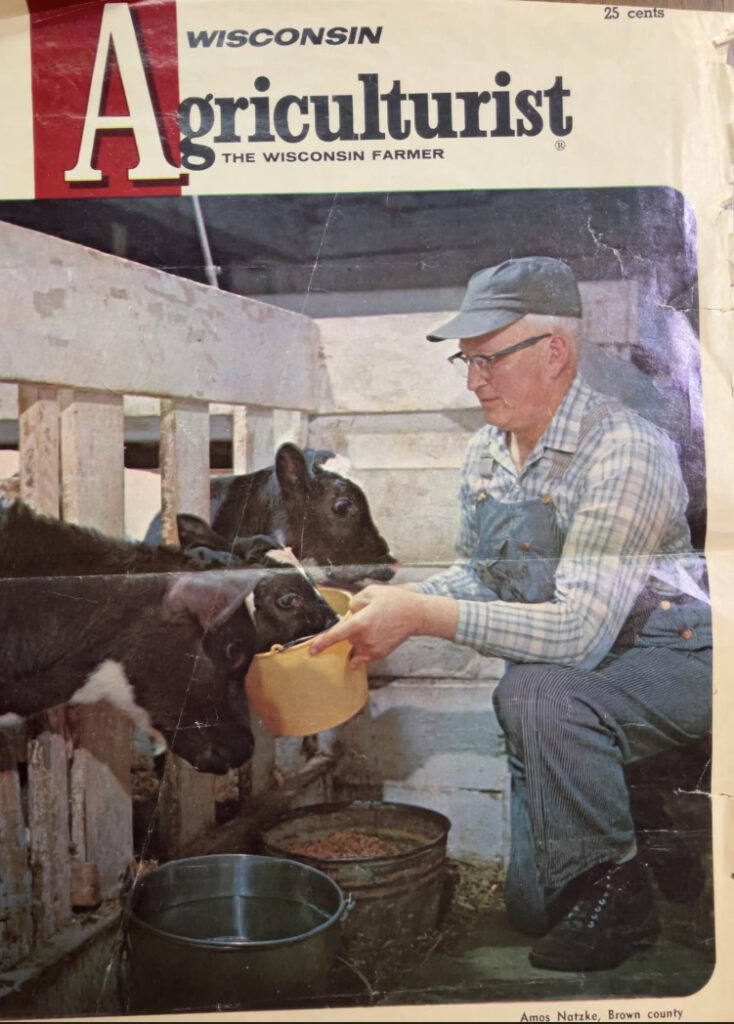
Eileen Bordeleau’s father, Amos Natzke, featured on the cover of the “Wisconsin Agriculturist” because of their calf feeding program in 1967. (Courtesy of Eileen Bordeleau)
EB: 100%. He also had some hired help. And then raising six boys, he had some built-in help.
He was involved in community things, too — involved in either farm committees, he was a bank director, he was active in the telephone company. So, sometimes he really needed the hired hands. But in my growing up, he was primarily just working on the farm. (My brother) Dan (Natzke) and I did a lot of the farm work with them, because by then all the other brothers were gone and away from home.
RB: So the years you were actually on the farm — living there — was when you’re born in 1953…?
EB: Until I went to college. I came back a couple summers and worked on the farm, but really pretty much until I got married.
RB: Do you have any specific memories that stick out from growing up on the farm?
EB: Oh yeah. We had to get up for chores every morning.
RB: What time?
EB: Be out there at 6:00 for milking. That was always when we started.
RB: Did you have a rooster that woke you up?
EB: Uh, my mom (laughing). And I remember a number of times when she had to come back from the barn and arouse us again. So apparently it wasn’t effective the first time.
RB: That continued on into the next generation, I remember that.
Did you take turns? Was it seven days a week you’re out there, or did you get a couple of days off?
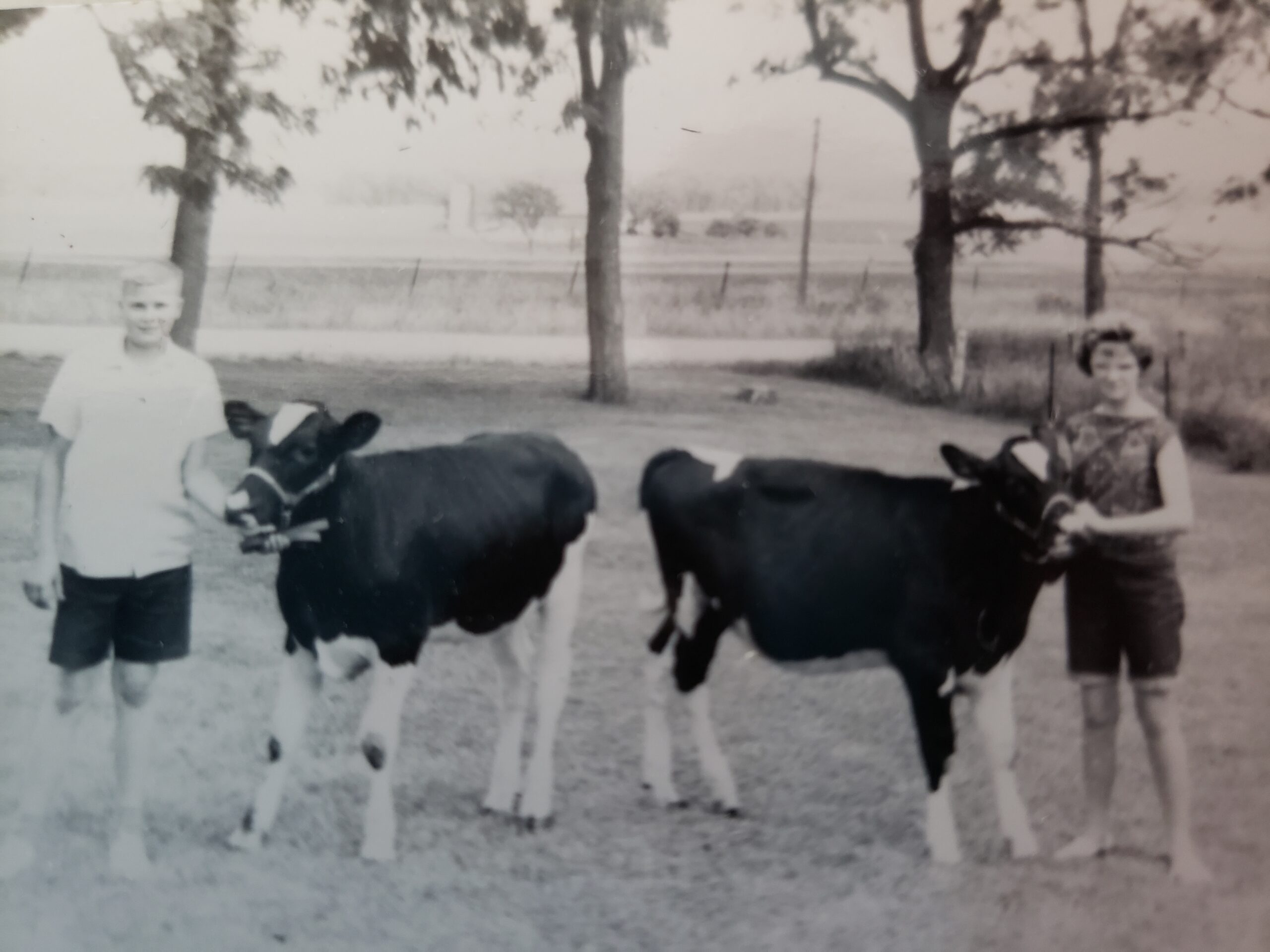
Eileen Bordeleau (r) and her brother, Dan Natzke, getting their calves ready for the county fair in 1964. Natzke now operates Wayside Dairy in Greenleaf, Wisconsin. (Courtesy of Eileen Bordeleau)
EB: It was seven days a week. I remember being out there before school. Then, we’d come in and get ready for school. We didn’t take a lot of time for that. You know, a quick breakfast and get ready.
I remember wearing a scarf over my head, always, so that my hair wouldn’t have a lot of barn smell when I was going to school.
RB: Hahaha…
EB: You know, you think about that!
RB: Yeah!
EB: I’m sure a classroom of farm kids could get a little bit…
RB: Smell a little different than others!
EB: Yeah. So that certainly was the work ethic that you learned: the responsibility.
RB: The farm as you knew it and what you grew up with burned — basically — to the ground in 2001. Can you talk a little bit about that experience?
EB: Yeah, it was very devastating to see all that.
On the other hand, it was very heartwarming. That very day, the neighbors all came over with trailers and trucks. The cows had to get out of there and they had to do some fast work to figure out where all those cows were going to go because they had to be milked that night.
You could just see the beauty of the farm community and that it’s still going even though so much time has passed. That’s still carried on through the next generations when the need is there. Those core values are there and that caring for community and caring for each other, which was pretty overwhelming to see.
This story came from an interview recorded at StoryCorps, a national initiative to record and collect stories of everyday people. During a StoryCorps Mobile Tour stop in Green Bay, Wisconsin from August 10 – September 8, 2023, 110 conversations were recorded and preserved. Excerpts were selected and produced by Wisconsin Public Radio staff.
Major support for the StoryCorps Mobile Tour is made possible by the Corporation for Public Broadcasting, in partnership with the American Folklife Center at the Library of Congress.
